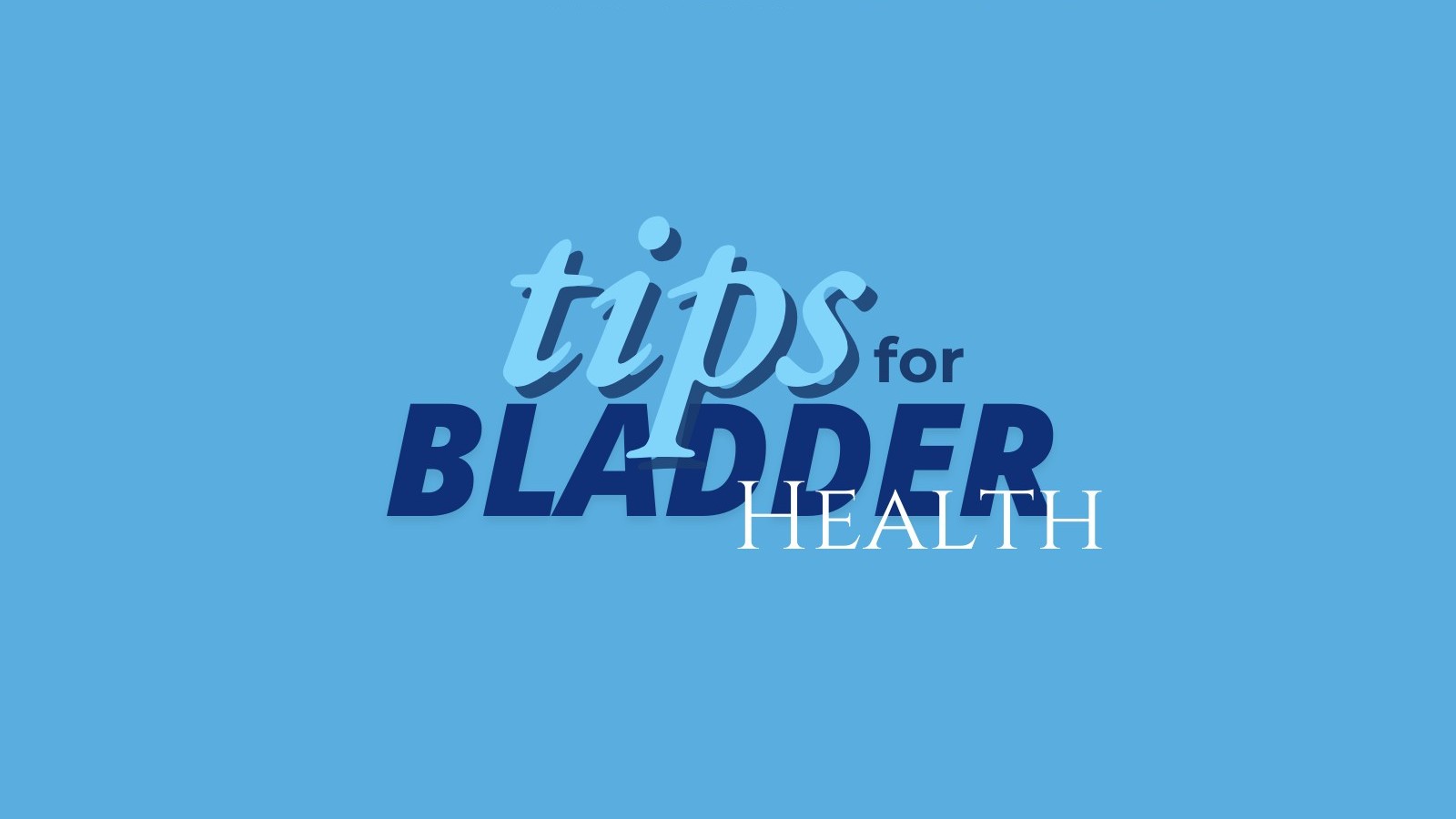Guidance for Pelvic Health
A healthy bladder and bowel are essential for pelvic wellness at any age. Our women’s health bladder specialists stress the importance of bladder and bowel care, given the unique urinary and digestive challenges women face.
In case you missed it, Dr. Hilary Frank recently hosted a webinar on a range of lifestyle, non-surgical, and surgical methods to help you gain control of your bladder. Take the first step to learn more. Watch the webinar today.
Here are some simple tips to keep your bladder in top shape.
Stay Hydrated
- Aim for 6-8 glasses of water daily. Avoid excessive caffeine, alcohol, and sugary drinks, as they can be bladder irritants.
- Drink steadily throughout the day rather than all at once to avoid sudden pressure on the bladder.
Have a Regular Bathroom Routine
- Try to go to the bathroom to pee every 3-4 hours during the day to avoid overfilling the bladder.
- Take time when using the bathroom; rushing can cause incomplete emptying and strain.
Limit Bladder Irritants
- Foods and drinks like caffeine, spicy foods, carbonated beverages, and acidic foods (like citrus) may irritate the bladder for some people.
- Monitor what you eat and adjust if certain foods seem to increase bladder urgency or discomfort.
Avoid Holding It
- Holding urine or waiting too long to have a bowel movement can strain the bladder and bowels, weakening the muscles over time.
- Empty your bladder and bowels when you feel the need.
Practice Good Bathroom Habits
- When peeing, relax and lean slightly forward to ensure full emptying.
- For bowel movements, keep your feet on a small stool to mimic a squatting position, which can help make elimination easier.
Stay Active
- Regular movement throughout your day can aid digestion and prevent constipation, easing pressure on the bladder and helping with bowel regularity.
Prioritize Fiber
- Fiber-rich foods (like whole grains, vegetables, and fruits) help prevent constipation, reducing pressure on the bladder and supporting regular bowel movements.
- Gradually increase fiber intake to avoid bloating and gas, and drink plenty of water to help fiber move through the digestive tract.
Keep Pelvic Floor Muscles Strong
- Pelvic floor exercises can help support bladder control by strengthening the muscles around the bladder and bowel.
- Work with a pelvic floor therapist if unsure how to perform these exercises correctly.
Manage Stress
- Chronic or high stress can contribute to digestive problems and bladder urgency.
- Practices like mindfulness, yoga, and deep breathing can help regulate stress, benefiting both bladder and bowel health.
See a Healthcare Provider for Persistent Issues
If you experience ongoing bladder or bowel discomfort, leaking, urgency, or pain, check in with our bladder and bowel specialists. Learn more.

